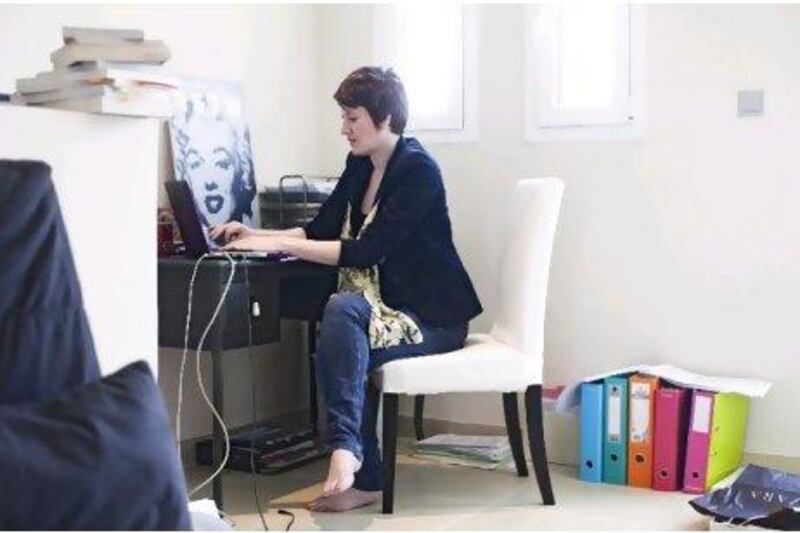DUBAI // The Louvre and Guggenheim will be major attractions for art-loving tourists, but a study has shown Emiratis want more time, attention and money to be spent on museums preserving the UAE's heritage.
The study titledFranchising Heritage: The Creation of a Transnational Heritage Industry in the Emirate of Abu Dhabi explores how heritage is being developed as a product, and how Emiratis regard those developments.
For the study, Sarina Wakefield of the UK interviewed 70 UAE nationals, by far most of whom thought having the international museums was a good thing that would give Abu Dhabi identity.
"Some questioned why there is too much money being spent on international brands and not more on local heritage," Ms Wakefield said.
She will submit the study for her PhD with The Open University in the UK within six months.
Several Emiratis who spoke to The National said they agreed with Ms Wakefield's premise.
Aisha bin Brook, 30, of Abu Dhabi, said Emirati heritage was being modernised so its authenticity may be at risk.
"I believe [international museums] would be a great addition to the country as it is a multicultural country," Ms bin Brooke said. "Yet in my opinion, they would be just for a certain group of people who love and understand art."
She said it was important that each nationality in a country developed, yet this could cause the loss of the host country's identity.
"Identity is not in old-like buildings but it must be in the soul of the city," Ms bin Brook said.
"I would really love if any emirate would build a mini city where people can relive the old life - have houses exactly like the past, make food using old methods and just experience how people used to live in the past."
In the coming years, Louvre Abu Dhabi and Guggenheim Abu Dhabi will be built in Saadiyat Island's cultural district.
Ms Wakefield said some museums were headed by expatriates and more trained Emiratis were needed in the industry to explore their heritage and show how they viewed it.
"It's not about an old building, it's about family, how you interact with other people, respect, hospitality and how things are passed down," she said.
Some experts point to Zayed University in Abu Dhabi as an example of successfully preserving cultural heritage.
The university offers courses in Emirati studies and master's degrees in museums.
"Many Emiratis are concerned that their heritage is in danger of being forgotten as the pace of life quickens," said Jane Bristol-Rhys, the associate professor of anthropology at Zayed University.
"Many that I know are actively involved in efforts to preserve heritage for future generations."
Ms Bristol-Rhys said examples of museums that display Emirati heritage were the historical district in Sharjah with the Beit Naboodah; the museum in Ras Al Khaimah, and Shindaga in Dubai, which has volunteers who perform traditional dances, make food and weave baskets.
She said Emiratis enjoyed oral traditions and the culture of performing, as well as a rich material culture ranging from boat building to embroidery.
Although some Emiratis say they believe museums are important, many would prefer that they modernise.
"I don't [visit] because they barely change what's displayed and I would like if they renew some of the old items and have things such as a cultural cafe," said Nayef Al Hajri, 23, from Ras Al Khaimah.
"Museums are important to highlight heritage for the youth, but it doesn't teach them the importance of traditions, customs, and behaviour."
Shaikha Al Dhaheri, another Emirati, agreed museums in the UAE must be upgraded to attract more visitors.
"When you have the opportunity to view different heritages, that takes you to your origin, and makes you more proud of where you came from," Ms Al Dhaheri said.
[ newsdesk@thenational.ae ]






